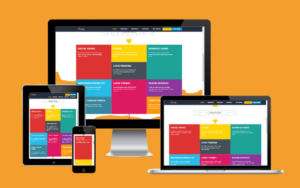How online payments work?
There are typically two different services that the payment gateway will offer:
- Option 1: A user shops on your online store. When the user is ready to check out he gets redirected to the payment gateway site to enter his credit card details. They process the payment and send the user back to your website. You do not store any credit card details.
- Option 2: A user shops on your online store. When the user is ready to check out he pays on your website. In the background you store his credit card details and query the payment gateway. They send a response accepting or rejecting the payment. Then you finish off the transaction.
I’d advise you to choose option 1 as capturing and storing credit card information on your website can be too much of a security risk.
All payment gateways will accept credit cards or Mastercard and Visa cheque cards, and some payment gateways will also accept Debit cards (which require a PIN number) EFT and bitcoins.
5 Important questions to ask:
It is vitally important that the gateway operates in your country. There are two separate but intertwined considerations when it comes to payment gateways: which currencies the gateway accepts, and which currencies it will pay out—that is, the countries in which it will work. A gateway may only work for merchants based in the USA, Canada, the UK, but can process payments from accepted credit cards no matter where that cardholder lives; many companies also offer currency conversion, so that international shoppers will see prices listed in their home currency instead of the default USD. Some gateways are US-only and will only accept US dollars.
2. What are the security standards?
All companies which process, store, or transmit consumer credit card information must comply with the Payment Card Industry Data Security Standard (PCI DSS), and your chosen payment gateway should adhere to this at the very minimum. They may also offer advanced fraud protection, either for an extra fee or included in your service, and it’s important to pick a gateway with a good reputation and know how they will keep your data secure.
3. What is the payout policy?
Payment gateways act as an intermediary between the customer’s bank account and your own, ensuring that the money is available and that the transaction is successful. But the money won’t actually land in your account until the transaction is settled by both the issuing and acquiring bank, and that can take time to process. Payment gateways hold on to batches of money and pay out to you on a regular basis.
4. Do I need a merchant account?
Depending on the size of your business, you may need a dedicated merchant account; some gateways also only work if you have one. They are great for larger businesses and you have more control over your money, but the application process involves a credit check and can be lengthy and expensive.A merchant is a special bank account that holds the funds from debit and credit card sales. Separate from the business owner’s actual bank account, funds in the merchant account are held there until the end of the day, when they are transferred to the owner as a batch—otherwise, the business would be depositing money hundreds of times per day. Whenever you pay with a debit or credit card, your money goes to this intermediary merchant account. With a dedicated merchant account, you enter into a legal agreement with the issuing bank or company and must usually undergo a lengthy credit check and application process. The most basic consumer protection policy states that a cardholder is entitled to get their money back if the good or service they purchased is not delivered. The payment processors risk losing money every time they handle a credit card transaction on your behalf, because they must cover the cost of chargebacks and credit issues. So getting a dedicated merchant account takes some effort, including gathering your financial statements, submitting an application (sometimes with an application fee), and convincing the underwriters that you are not a risky investment for them.
Should you get a dedicated merchant account? That depends. If you’re only processing a few dozen credit cards per month, then the lengthy application process and the myriad of fees, contracts, and terms of service may not be worth it. South Africa’s top four banks (Standard Bank, Nedbank, ABSA and FNB) all offer Internet Merchant Accounts. A merchant can therefore apply for an Internet Merchant Account directly with their bank.
5. How much does the service cost?
Payment gateways are going to cost you money; this is a fact that no one can deny. There are two types of charges that can factor in when choosing your preferred gateway – sign up/service fees, and transaction fees. Some payment gateways require an upfront fee and/or a monthly flat fee to use, plus a transaction fee, usually a small percentage on each transaction. Others are free to sign-up, but charge a transaction fee. Payment processing fees are a cost of doing business, so it’s important to think about cost comparisons carefully – small savings can make a big difference when multiplied over sizeable transaction volumes.
So which one should I choose?
Here’s our list of recommended payment gateways to choose from.
Some of the payment gateways will require setting up a merchant account with your bank, and others do not.
Let’s look at them in more detail:
Paygate
Requires a merchant account: Yes
Website: www.paygate.co.za
Paygate has been in business since 1996, and provides various payment gateway options for Mastercard, Visa, American Express, and Diners Club. PayGate has a number of options including Payweb which easily adds payment functionality to your website via a transferal to their payment page, PayXML which allows more integration options so you can host the payment page on your own website, and Paybill which allows customers to offer the functionality to pay any bill online.
PayPal
Requires a merchant account: No
Website: www.paypal.com/za
PayPal is one of the leading global payment services, and offered merchant services to South Africa from 2010 onwards. PayPal has partnered with FNB to easily allow withdrawing or payments using their bank accounts, and also for non-FNB customers via the FNB Withdraw service.
The options available for online payments via PayPal include the PayPal express checkout for PayPal customers, and the PayPal standard checkout which authorizes payments and return the user their your website.
Payfast
Requires a merchant account: No
Website: www.payfast.co.za
PayFast have simplified the pricing by offering no setup fees or monthly fees, PayFast also offer a InstantEFT option using a code which they then “scrape” on their bank account, and almost immediately process the transaction. .
PayFast also offers bitcoin, payD, Ukask, and mobicred payments, and they power some of the leading online merchants in South Africa including Takealot, Sportsmans Warehouse, and Legendary Brands.
PayU
Requires a merchant account: Not for PayU Easy. (PayU Plus, and PayU Enterprise require one)
Website: www.payu.co.za
PayU is one of the largest payment providers worldwide, and offers a variety of options for business and the largest number of payment methods of any gateway in South Africa. PayU is also available in 16 countries, and has a robust enterprise ready system for transaction queues for businesses requiring a large number of transactions at a time. The PayU Wallet allows consumers to pay from their wallet and not need to type in credit card details on checkout.
SnapScan
Requires a merchant account: No
website: www.snapscan.com
SnapScan currently empowers over 17,000 merchants via their handy payment app, and have now launched a method of paying via the app for online purchases. Merchants sign up for an account, and customers then use the app and scan a QR-code unique to the order to facilitate payment. With no need to enter credit card details the process is simplified and more secure.
Virtual Card Services
Requires a merchant account: Yes
Website: website.vcs.co.za
Established in 1996, Virtual Card Services (VCS) was one of the first payment gateways in South Africa.
VCS offers a number of related products such as virtual terminal for processing transactions in bulk, retrying declined transactions, and giving refunds to name a few. Their Virtual EFT service, allows merchants to create single or recurring credits/debits and presenting these to the Automated Clearing Bereau (ACB) for processing.
MyGate
Requires a merchant account: Yes
Website: www.mygate.co.za
MyGate enables customers to have one point of contact for all of their Payment and Collection needs. MyGate is a registered Payment Service Provider (PSP), offering payment gateway services that enable merchants to accept credit card and pin-less debit cards from a website.
MyGate offer 3 main pricing tiers which have varying monthly costs, and transaction fees which can be chosen based on the number of transactions through your store .
MyGate also includes recurring payment options, and mail order or call centre payments, which turns your PC into a point of sale system. (POS)
MyGate currently works with all four major Banks in South Africa and assists all its clients in setting up their merchant accounts with the banks.






